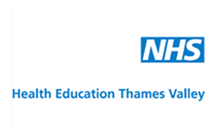About the Continence and Catheter Care programme
elearning for excellence in continence and catheter care comprises two sessions: Promoting best practice in continence care and Promoting best practice in catheter care. The programme has been developed by the Oxford Academic Health Science Network, Oxford University Hospitals NHS Foundation Trust, Oxford Health NHS Foundation Trust and Great Western Hospitals NHS Foundation Trust in partnership with Health Education England elearning for healthcare and Health Education England Thames Valley. This programme, aimed at nursing staff and health care assistants across all care settings, aims to improve knowledge and awareness of all aspects of continence and catheter care. The programme includes discussion of the different types of incontinence and the therapies and treatments that can be offered to patients. Emphasis will be placed on avoiding catheterisation and on strategies for reducing the risk of catheter acquired urinary tract infection (CAUTI) in situations where catheterisation is unavoidable. The elearning sessions should be used as an adjunct to face-to-face teaching sessions on catheterisation.
Providing high quality continence care is an essential part of basic nursing care but it is an area that is often not well understood. Urinary incontinence can have a profound impact on a person’s life, often leading to social isolation which can lead to a deterioration in physical and mental health. Poor continence care can exacerbate this. Nursing staff should be able to recognise those who are at risk of being incontinent and support them to maintain their continence. Nurses should also support patients who are incontinent to regain their continence.
Catheterisation is often inappropriately used to manage incontinence, in many cases being used as a first resort strategy for incontinence rather than as a last resort after all other options have been explored. Catheterisation is an invasive procedure, which carries an inherent risk of CAUTI. Bacteriuria develops in approximately 30% of catheterised patients after 2–10 days, and 24% of these will develop symptoms of CAUTI. CAUTI represents a significant patient harm with around 4% of patients who acquire a CAUTI going on to develop sepsis or bacteraemia. In addition to the harm caused to patients, CAUTI represents a financial burden to the NHS in terms of increased length of stay and treatment costs.
More information
-
Session 1: Promoting best practice in continence care
Session 1: Promoting best practice in continence care
This session, aimed at health care assistants and nursing staff, will provide an overview of the anatomy and physiology of the lower urinary tract before describing the factors that keep us continent. Different types of incontinence will be described along with therapies and treatments that can support patients to remain continent.
-
Session 2: Promoting best practice in catheter care
Session 2: Promoting best practice in catheter care
This session will focus on best practice in catheter care. Emphasis will be placed on reducing unnecessary catheterisations and, where catheterisation is unavoidable, following the correct aseptic technique for catheter insertion. The session will then provide an overview of catheter care and the importance of removing catheters as soon as they are no longer required. The importance of documentation and communication with other healthcare professionals is also described.
Executive group

Christine Selwood
Clinical Lead for the Oxfordshire Community Bladder and Bowel Service
Hannah Oatley
Clinical Innovation Adoption Manager, Oxford Academic Health Science Network
Suzanne Jordan
Infection Prevention and Control Nurse, Great Western Hospital NHS Foundation Trust
Debbie Pond
Advanced Nurse Practitioner in Adult Continence
Project team

Neha Baj
Senior Project Manager, HEE elearning for healthcare
Tamsin Koronka
Project Manager, HEE elearning for healthcare
Alex Drinkall
Stakeholder Manager, HEE elearning for healthcare
Simon Blackmore
Learning Designer, HEE elearning for healthcare







